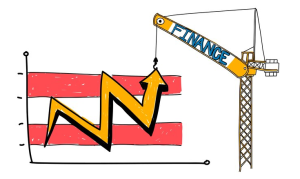Inflation has always been a significant concern for economies around the world, and the United States is no exception. As prices rise, the purchasing power of consumers declines, affecting various aspects of everyday life. This blog post explores the anticipated consequences of inflation in the US in the next few years and sheds light on what Americans should expect.
With insights into economic policies, market reactions, and societal adjustments, we aim to provide a comprehensive understanding of the inflationary pressures facing the country. Let’s delve into the multifaceted impact this economic phenomenon is likely to have.
Economic implications of rising prices

The surge in prices can lead to a cascade of economic effects. One of the primary consequences is the erosion of consumer purchasing power. As goods and services become more expensive, the average citizen may find it harder to maintain their standard of living. This scenario is particularly challenging for individuals on fixed incomes, such as retirees and low-income households.
Despite these challenges, some sectors might see a silver lining. For instance, businesses involved in essential goods and services could witness increased demand, even as inflation rises. However, other industries, particularly those reliant on discretionary spending, might suffer as consumers tighten their belts.
Moreover, inflation often prompts the Federal Reserve to adjust interest rates to control the money supply. Higher interest rates can make borrowing more expensive, potentially slowing down economic growth. Therefore, managing inflation is a delicate balancing act for policymakers.
Effect on investments
The investment landscape is also susceptible to changes brought about by inflation. For investors, rising prices can erode the real returns on their investments. For example, if the inflation rate surpasses the interest earned on savings or bonds, the actual value of these investments decreases over time.
On the other hand, certain asset classes might benefit from an inflationary environment. Real estate and commodities, for instance, often see their values appreciate as prices rise. Investors might seek refuge in these assets to hedge against the diminishing purchasing power of cash.
Additionally, equities can sometimes offer protection against inflation. Companies that can pass on higher costs to consumers or those with pricing power might still perform well in such a scenario. Therefore, a diversified portfolio becomes essential in navigating the uncertainties of an inflationary period.
Impact on savings and debt
Inflation can have a profound effect on both savings and debt. For savers, the erosion of purchasing power means that money saved today might not go as far in the future. To mitigate this, individuals may need to seek out savings accounts or investment options that offer higher returns, but these often come with increased risk.
Conversely, borrowers might find that inflation works in their favor. Fixed-rate debt, such as mortgages or student loans, becomes less burdensome in real terms as inflation rises. The money owed today is effectively worth less in the future, making it easier to repay with future earnings.
Understanding these dynamics can help individuals make more informed financial decisions, whether it involves choosing where to save or considering the timing and type of debt to take on.
Societal and behavioral changes
Inflation doesn’t just influence economic metrics; it can also drive significant societal changes. As living costs climb, we might observe shifts in consumer behavior. People could prioritize essential purchases and seek value-oriented products, altering market demand dynamics.
This cautious approach to spending can lead to a more frugal lifestyle, where savings and emergency funds become a priority. Such behavioral changes can impact businesses, especially those catering to non-essential goods and services. Expect increased competition among companies to attract and retain cost-conscious consumers.
In addition, younger generations may adjust their life plans due to economic uncertainties. Postponing major life decisions, such as homeownership or starting a family, could become more common until financial stability feels achievable. These changes highlight the broader societal impact inflation can have beyond immediate economic concerns.
Government and policy responses
One of the critical factors in managing inflation is the response of the government and monetary authorities. Policymakers might implement various measures to stabilize prices and ensure economic growth. Actions could include adjusting interest rates, altering fiscal policies, or introducing targeted stimulus programs.
Public response to these policies can also shape the inflation landscape. For instance, expectations of future inflation can become self-fulfilling if consumers and businesses start to anticipate higher prices and adjust their behavior accordingly. Communication from policymakers, therefore, plays a crucial role in anchoring inflation expectations.
Effective policy responses can mitigate some of the adverse effects of inflation, although the exact impact of these measures can vary based on execution and external factors such as global economic conditions.
Preparing for the future
While inflation brings many challenges, there are proactive steps individuals and businesses can take to prepare. For consumers, diversifying investments, keeping an eye on expenditure, and maintaining a buffer of savings are essential strategies.
Businesses, on the other hand, need to stay agile. This might involve adjusting pricing strategies, optimizing supply chains, and managing costs efficiently. Entrepreneurs could explore new market opportunities or pivot their business models to better align with changing consumer behavior.
Both individuals and businesses must remain vigilant and adaptive to navigate the impending inflationary pressures. Staying informed and being proactive can help mitigate the impact and seize potential opportunities that arise during this economic phase.






